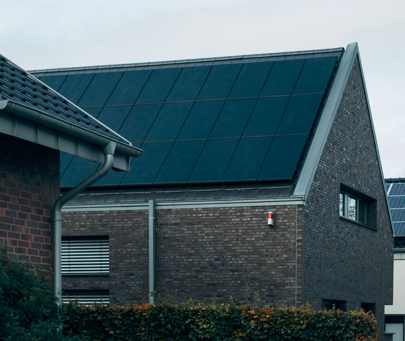Solar rooftop systems and other sources of renewable energy are on the rise. Residential rooftop solar systems have proven to be environmentally sound and efficient for domestic households, along with monetary benefits such as saving on electricity bills and government subsidies.
Solar panels are generally placed on a rooftop or in an elevated position to ensure a steady and consistent supply of sunlight. This sunlight is then converted to DC electricity and then into AC electricity by an inverter.
To ensure domestic solar systems perform at optimum capabilities, solar providers must consider a variety of factors before going ahead with the installation. A Site Survey prior to installation gives service providers all the information they require to correctly install and operate a residential solar system, tailored to every customer’s specific needs.
The three main factors assessed during a site survey are:
-
Feasibility – is the solar plant installation feasible at the location?
-
Viability – does the solar installation provide financial benefits in the long term?
-
User requirements – are user requirements correctly understood?
Site surveys ensure that you have a rooftop solar power system designed specifically for your needs as per your location, rooftop space and the electricity required to power your home. HomeScape has three unique product variants that are tailor-made to fit your space: the Atrium, the Aerial and the Terra.
During a site survey our team determines the following factors:
-
Shading Analysis
This helps determine the correct location to install a solar plant. The orientation and mounting of the solar panels determine the amount of incident sunlight which in turn contributes to the amount of electricity generated. The solar panels need to be shade-free to get the optimum performance from the solar photovoltaic system. The area must be assessed to ensure there are no barriers that cause shading on the panels.
-
Roof Structure Inspection
This is done to measure the size and to determine the attributes and structure of the roof. The rooftop area and size of the panels determine how many solar modules can fit in the space available. We consider the following factors:
- Surface Area (rooftop dimensions)
- Roof Inclination
- Roof Direction
- Construction Material
-
Usage Analysis
This is the overall analysis of required instruments such as DC and AC converters and electricity usage. This helps determine the overall generation of electricity and an estimate of the units of electricity that can be saved.
-
Financial Analysis
Government has released many incentives and financial aids for the solar panel system users. The overall cost of installing and the economic viability of the system are other important parameters that are estimated during the site survey.
Conducting a site survey is the starting point for a rooftop solar power system installation for a home in India. Your site survey results and shading evaluation in combination with the energy audit helps you make an informed decision about switching to solar.
